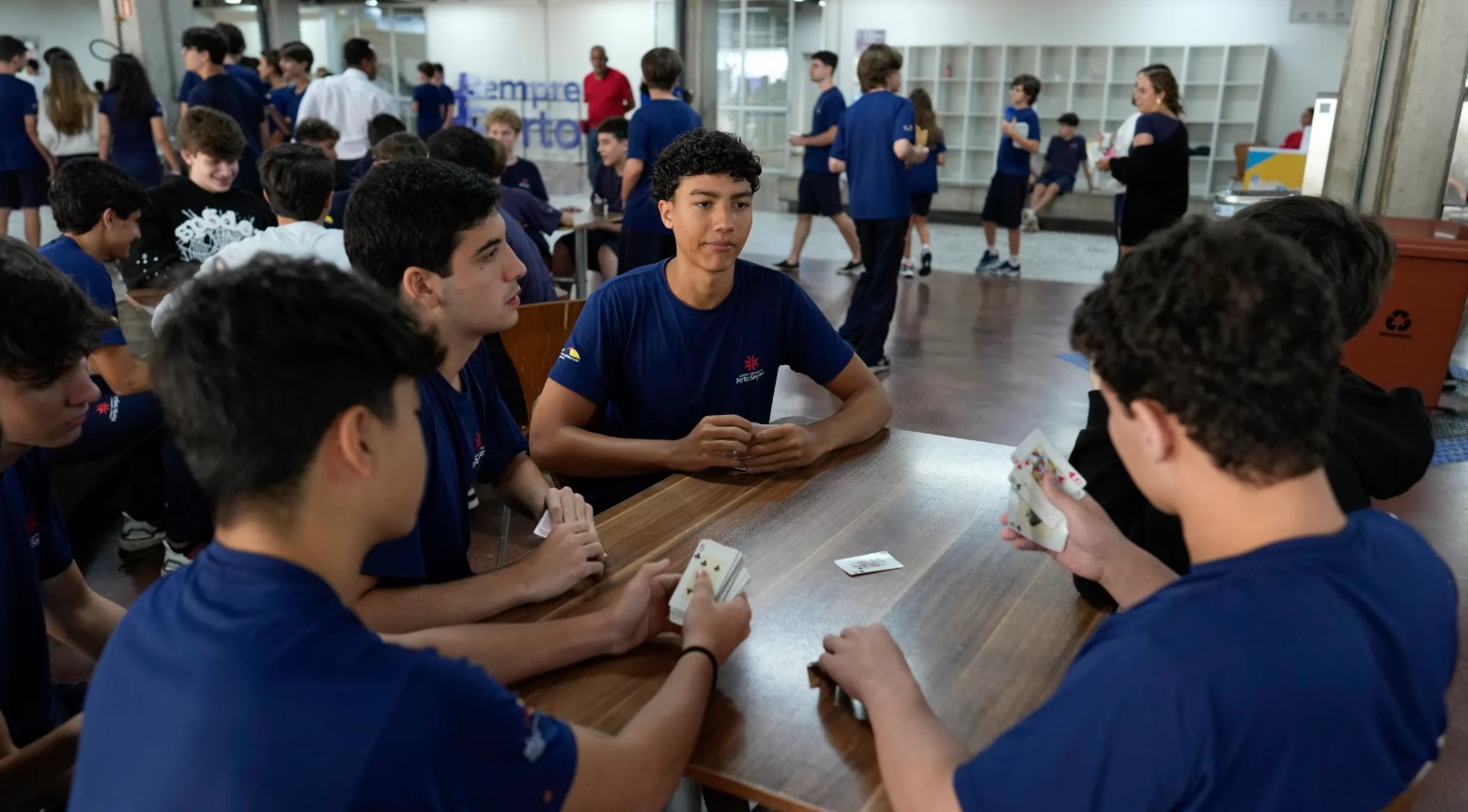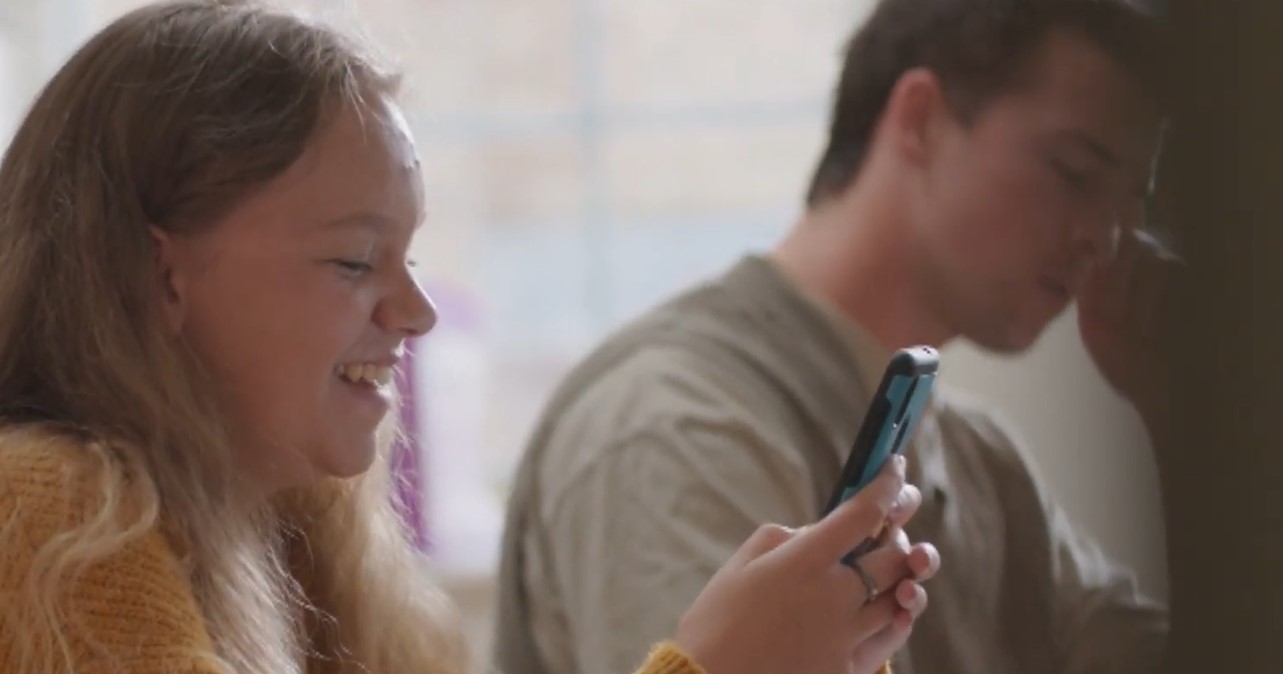
Schools across Brazil have banned phones, and the impact is already visible. Teachers, parents, and students are adjusting to a new reality, where classrooms are quieter, conversations are more frequent, and distractions are disappearing.
The sudden shift has sparked debates, but early results suggest that removing phones from schools is bringing real benefits.
Classrooms Without Screens Are Changing Student Behavior
Teachers report that students are paying more attention. Lessons are smoother because students are not checking messages, scrolling through social media, or playing games.
Before the ban, many teachers struggled to keep students focused. Now, they see real engagement.
Many students who used to hide their phones under desks now participate in discussions. Teachers say students are asking more questions, making eye contact, and finishing assignments faster. Some schools are even reporting fewer incidents of classroom disruptions.
A high school teacher in São Paulo said, “Before, I had to ask students to put their phones away at least ten times in a lesson. Now, I do not have to do it at all. They listen, they talk, and they actually learn.”
Parents Feel Disconnected but Are Learning to Adapt
Many parents struggle with the ban. In recent years, phones have become their way to stay connected with their children throughout the day. Many sent messages between classes, checked their location, or even monitored them through apps. The ban has forced parents to step back.
Some worry about emergencies. Others feel uneasy not knowing what their children are doing at school. But many educators believe parents need to trust schools more. Experts say that excessive monitoring can make children overly dependent on their parents.
A mother from Rio de Janeiro said, “I used to message my son all the time, just to make sure he was okay. Now, I have to wait until he comes home. It is strange, but maybe it is better for him.”
Still, most parents supported the ban.
Schools Finding New Ways to Handle the Ban

Enforcing the ban is not easy. Some students still try to bring their phones and check them when teachers are not looking. To stop this, many schools have created special storage areas for phones. Some use locked boxes where students place their phones in the morning and get them back at the end of the day.
Other schools have set up “phone-free zones” where students can still have their devices but cannot use them during lessons. Some schools have even built designated “phone stations” outside school grounds where students can use their devices before and after school.
A principal in Brasília said, “We knew it would be difficult, but the changes we are seeing are worth it. Students are talking to each other again. They are playing outside instead of sitting in a corner staring at their screens.”
Experts See Long-Term Benefits for Students
Experts say phone addiction has been harming students’ concentration, mental health, and ability to socialize. They believe banning phones in schools could lead to better grades, improved critical thinking, and stronger relationships.
Studies from other countries show that students perform better academically when phones are removed from classrooms. Schools in France, the UK, Sweden, and some other countries have already adopted similar bans. Researchers believe Brazil will see similar positive results.
Psychologists also say less screen time helps students build real-life social skills. Without phones, students are more likely to have face-to-face conversations, work together in groups, and develop patience.
A psychologist in São Paulo explained, “Teenagers have become too dependent on digital interactions. When you take phones away, they start talking again, making eye contact, and developing better social habits.”
Also, according to a study in BMC Psychology, too much screen time is linked to mental health problems in teenagers. The study found that using screens too often, especially on school days, lowers mental well-being. Social media use was the biggest problem, especially for girls, who showed a higher risk of depression.
Therefore, reducing and controlling the use of smartphones in schools is definitely a good move.
Students Divided Over the Ban

Not all students are happy. Many say the ban makes their school days feel longer. Some feel anxious not knowing what is happening online. Others miss listening to music, checking social media, or texting friends between classes.
A 16-year-old student from Porto Alegre told us, “I understand why they are doing it, but I do not like it. Sometimes I just want to check my phone for a few seconds, and now I cannot.”
Other students, however, say the ban has made school life better. A 14-year-old from Recife said, “At first, I hated it, but now I realize I actually talk to my friends more. We laugh, we play games, and we pay more attention in class.”
Brazil Leading a New Movement in Education
Banning phones in schools is helping students concentrate better in class, talk more with their classmates, and spend less time glued to screens.
Without constant distractions, students can engage more in lessons, build stronger friendships, and develop better social skills.
Schools are creating an environment where learning comes first, face-to-face conversations replace texting, and students rely less on their phones for entertainment and validation.
For now, the early results are promising. Students are more engaged, teachers are facing fewer classroom disruptions, and parents are learning to let go. Schools are adjusting, and many believe the ban will bring lasting improvements.
Also, the latest incident where a phone exploded in a woman’s pocket is another reason for parents to be satisfied with the ban.
















